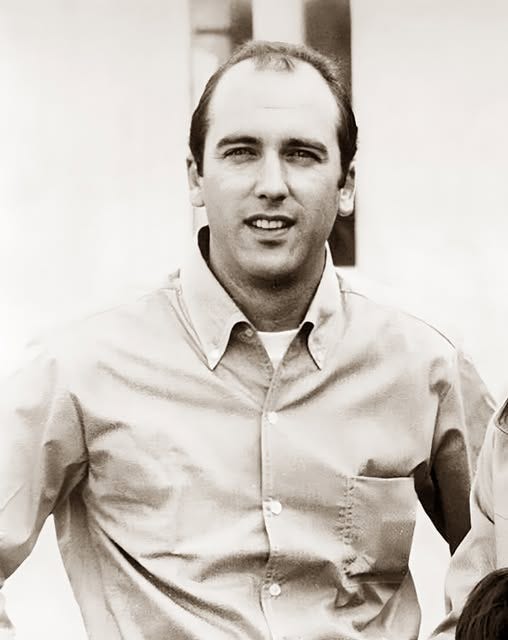Roger Nichols and Our Small Circle of Friends. A necessary obituary
There are melodies so delicate, so perfectly shaped, so moving, so sweet, that they seem to have always existed—hovering in a quiet, flickering wait—until someone with the right heart pulled them down from the ether, from the sky, from that mysterious nothingness —bereshit bara— to bring them into the world. Roger Nichols was one of those people.
Nichols was born in 1940 in the heart of the Five Valleys, in Missoula, Montana, surrounded by the whisper of the Clark Fork River and the embrace of the Rocky Mountains. Like his entire generation, he grew up with the echoes of the most brutal war in history and the blank-slate optimism that followed—because he had the fortune to emerge on the side of the victors. The people of his time embraced a revolution that I still find astonishing, because it was a revolution of inner worlds—a generation that tried, through the extraordinary human gift of creation, to build a new consciousness, to see if a different world was possible. In the end, we are where we are. But it was an attempt that, I believe, could—should—be a reference point in these cynical and disenchanted times.
One of the tools of that revolution—which for perhaps the first time in history involved sensations, feelings, thoughts, and bodies not merely as disposable vehicles for historical progress, but as vessels of history itself—was music. And although many young people—another fundamental feature of that revolt: it was carried out by wild, naïve, wonderful twenty-somethings—made music, Roger Nichols’ had a special touch of sophistication, sweetness, and piercing delicacy. His greatness lay not only in his complete discretion, his almost aggressive modesty—he never wanted to be in the spotlight, which he reserved for the music—but in his wisdom: the rare ability to marry tradition with innovation. He reached entirely new places without destroying what came before; quite the opposite—he took the best of the old ways, not by abandoning them, but by stretching them so far they arrived somewhere fresh, somewhere new.
In Roger Nichols’ music, Tin Pan Alley meets psychedelia; the Great American Songbook intersects with the British Invasion; the formal elegance of baroque pop blends with the shameless experimentation of garage rock. His music—whether composed by him or arranged by him (for any great musician reinterprets what came before their time)—is a bridge. It reaches modernity but doesn’t embrace it blindly. Instead, it holds a lucid skepticism, understanding that not everything new is good, and not everything old is harmful. He was a visionary because he could extract the logic and essence from anything—aged or brand-new—and transform it into sound.
In this sense, the album Roger Nichols and the Small Circle of Friends (A&M, 1968) is exemplary. A hidden gem, it is a cornerstone of what would come to be called sunshine pop, or what we might now classify as soft rock. But if you really listen, it’s a collection of songs—ranging from covers of era-defining giants like Burt Bacharach, Carole King, John Lennon and Paul McCartney, to original tracks that fully intend to become classics, and succeed. The arrangements—intimate, meticulous, artfully sincere and sincerely artful—revealed an artist who revered beauty and found sophistication in simplicity. Every second of that album carries a rare kind of elegance, the kind that doesn’t age—it matures.
Roger Nichols wasn’t a celebrity in the usual sense. He didn’t chase fame. He chased beauty. He chased feeling. In an industry so often ruled by ego and excess—and which, in the 1960s, saw both the sublime and the grotesque—Roger’s work whispered, softly and deliberately, and those who listened were transformed. I was, of course.
What made Roger special wasn’t just his music. It was the humility with which he shared it. He collaborated generously, composed with restraint, and lived with a kind of artistic integrity—understood as the faithful pursuit of personal obsessions toward the creation of work that might be anything but is, without a doubt, his. His songs didn’t shout to be heard—they invited you in. They offered—offer—warmth, refuge, clarity. A gentle hand on your shoulder reminding you that someone, somewhere, understood.
If you know “We’ve Only Just Begun,” you know Roger Nichols. His name may not have been familiar to you right away—he was never the loudest in the room—but the chords, the phrasing, the emotion behind that immortal song were undeniably his. Co-written with Paul Williams, it began as a jingle for a bank commercial and became an anthem of love, played at two or three million weddings, recorded by the Carpenters with such sincerity that it became part of the universal songbook. But behind that warm voice and the lush arrangement stood Roger: a quiet craftsman with perfect pitch and a poet’s soul.
Roger Nichols left us on May 21, 2025. To mourn his passing is to feel the silence where a melody once lived. But to celebrate his life is to play those songs again and again, and realize they still speak. They still heal.
We had only just begun to understand the depth of what you gave us. But what a gift it was.
C/S.





